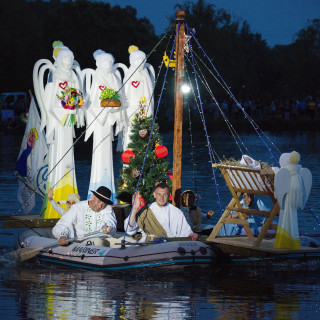Tricky Words in this week's OVI
Mayor. This word seems to have taken hold now as the typical translation of "starosta", as well as of "primátor", which is what I used to reserve the title "mayor" for. In history, when the
"starosta" was known as the "richtár" due to the medieval German influence, there was a good historical equivalent title in English, which was "port-reeve" or simply "reeve".
At a higher level, the "župan" was the "shire-reeve", which became reduced to "sheriff" in common usage. Later on, when towns developed and administration became more official, the "reeve"
("richtár") became the magistrate (another tricky word, because the English meaning is quite different from "Magistrát"), and as politics became more democratic and elected local councils were
established, magistrates were confined to the law-courts as judges, and local council leaders took over the running of villages. So now "starosta" can be "local mayor", and "primátor" can be "city
mayor". And remember to say /méje/, because /mejdže/ is Major, the army rank above Captain.
Andy's Wordshop
is the time of year (autumn in British English, fall in American English) for big events in Slovakia, the USA and the UK, so let's revise them a bit. October 31 is Halloween (big in USA, small in
UK, growing in SR), the evening before All Hallows Day, which is the old name for All Saints Day (big in SR, small in USA and UK).
Next day is All Souls Day (gigantic in SR, small in USA and UK) on November 2. Then there is Guy Fawke's Night (massive in UK, nothing in USA or SR), commemorating the foiling of the Catholic
Gunpowder Plot to blow up Parliament in London in 1605. Some people still remember VOSR (Lenin's Great October Socialist Revolution in Russia in 1917) on November 7. And then there's the
anniversary of the Velvet Revolution of 1989 on November 17 (fading into history in SR, nothing in USA or UK), and finally Thanksgiving Day on the last Thurday in November, the 24th this year
(crucial in USA, nothing in UK or SR).
Na podujatí Košické Benátky prezentovali svoje plavidlá aj naše spriatelené detské domovy.











